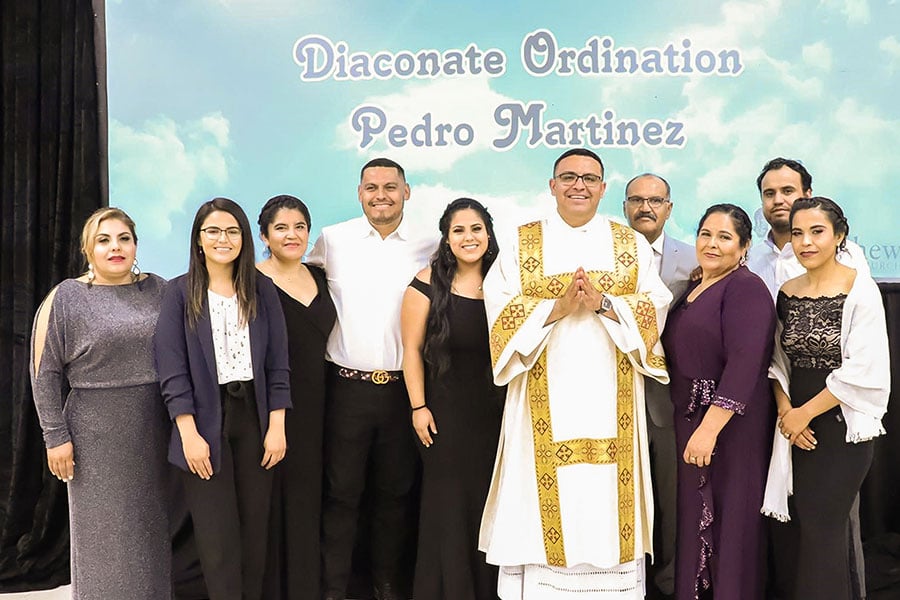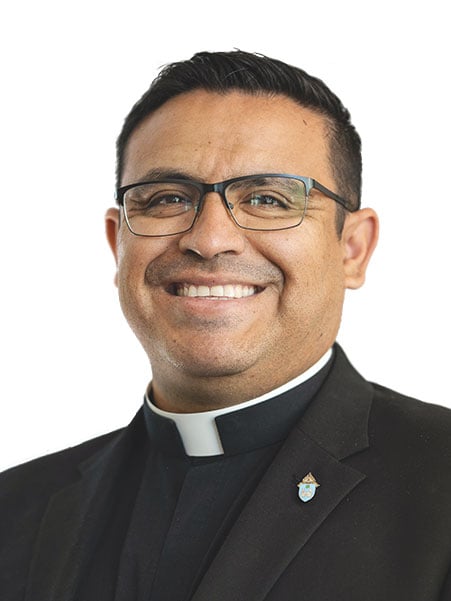It starts at home: a path to the religious life

Father Pedro Martinez with his parents and siblings at his diaconate ordination in 2019. (courtesy photo)
As a Hispanic immigrant priest in the United States, I bring my personal experience of growing up in Mexico and moving to the U.S. I brought with me strong Catholic values in which the Domestic Church, the family, played an important role. My faith in Mexico was not primarily sacramental due to limiting circumstances. Instead, it was mostly an experience of community-based and family-based popular religiosity.
Moving to the U.S. when I was 14 was a multi-generational and multicultural experience. But one thing that remained the same was the need to continue fostering the expression of our faith in the Domestic Church. “In it [the Domestic Church] parents should, by their word and example, be the first preachers of the faith to their children; they should encourage them in the vocation which is proper to each of them, fostering with special care vocation to a sacred state.” (Lumen Gentium 11)

As a newly ordained priest I can see the importance of building and forming the Domestic Church. Doing so enables the family, along with the guidance of the Church, to persevere in the faith, fostering vocations even in the midst of what seems a rapidly changing and evolving world, and remaining true to the Gospel message and values.
Growing up in a small village in Guanajuato, Mexico, I was able to experience the popular religiosity and the active role of the Domestic Church in nurturing the Catholic faith. Because our priest would cover a significant amount of rural area with many churches, we were able to have Mass only twice a month. The people maintained the faith through communal Rosaries, processions, holy hours, popular saint devotions and feast days, catechism classes, and many other activities that promoted and fostered their faith. The Domestic Church even in its limitations was able to maintain and nurture a lively expression of their faith.
The family as a Domestic Church plays a significant role in fostering committed vocations to the priesthood, religious life, and matrimony. The Domestic Church’s witness and example of faith and life becomes essential in fostering vocations. Holding true to the Gospel of Jesus Christ in multigenerational and multicultural families is crucial for the expression and affirmation of their proclaimed and lived faith that enables people to be transformed and changed.
